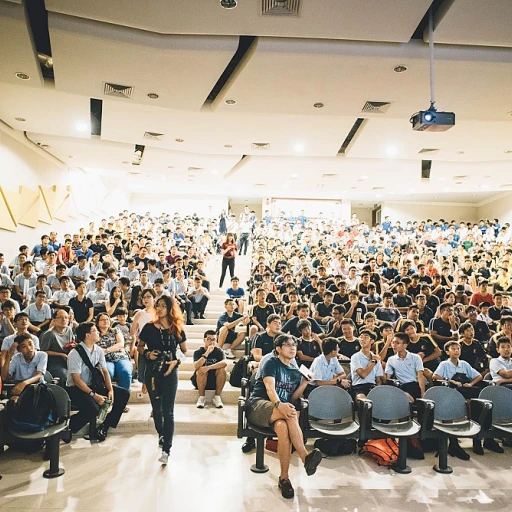
Evolving standards in criminal record checks
Changing Expectations in Criminal Background Screening
Criminal record checks have become a central part of the hiring process for many companies. As the workplace evolves, so do the standards and expectations around background screening. Employers are no longer just looking for a simple yes or no answer about a candidate’s criminal history. Instead, they want detailed, up-to-date information that helps them make informed decisions while managing risk and maintaining compliance.
Today’s background check process is more comprehensive than ever. Companies are expanding the scope of their criminal background checks to include:
- Local, state, and federal criminal records
- Real time monitoring of criminal activity for current employees
- Continuous criminal record checks throughout employment
- Identity verification and social media screening
Employers are also responding to new regulations and societal expectations. For example, the rise of remote work and the gig economy has pushed organizations to rethink how they conduct background screening and verification. With more employees working from different locations, the need for accurate, cross-jurisdictional criminal record checks has grown.
Another trend is the increased use of data analytics and check statistics to improve the efficiency and accuracy of the check process. This shift allows companies to reduce turnaround time and make the pre employment screening process smoother for both employers and job candidates.
As standards evolve, it’s important for employers to stay informed about local laws and best practices. For instance, those hiring in New Hampshire may want to review how New Hampshire criminal background checks work to ensure compliance and avoid legal pitfalls.
These evolving standards are closely linked to technology’s impact on background screening, the balance between privacy and security, and the challenges of globalization. Staying updated on these trends helps companies protect themselves and their employees, while also supporting fair chance hiring and reducing risk.
Technology’s impact on background screening
How Automation and AI Are Changing the Screening Landscape
Technology is rapidly transforming the way companies approach background checks. Automated systems and artificial intelligence (AI) are now central to the background screening process, making it faster and more accurate. Employers can now access criminal records, employment history, and identity verification data in real time, reducing the time needed for pre employment checks. This shift is especially important as remote work and global hiring become more common, requiring efficient and reliable background screening across borders.
- Speed and efficiency: Automated background check tools can process large volumes of records quickly, helping employers make faster hiring decisions.
- Improved accuracy: AI-powered systems help minimize human error in criminal record checks and identity verification, lowering the risk of missing critical information.
- Continuous monitoring: Some companies now use continuous criminal monitoring to track employees' criminal activity after hiring, not just during the initial check process.
- Integration with other data sources: Modern background screening platforms can pull information from social media, court records, and international databases, giving a more complete picture of a candidate's criminal history and risk profile.
However, as technology advances, new challenges emerge. Data privacy and security are major concerns, especially when handling sensitive criminal records and personal information. Employers must ensure their background check process complies with local and international regulations to protect both candidates and their own organizations.
Another challenge is the accuracy of the data itself. Automated systems rely on up-to-date and comprehensive records. Incomplete or outdated criminal records can lead to errors in the hiring process, potentially excluding qualified candidates or missing red flags. For more details on how arrest warrants may appear in background checks, you can read this in-depth guide on arrest warrants in background checks.
As technology continues to evolve, companies will need to balance the benefits of faster, more thorough background checks with the responsibility to protect privacy and ensure fairness in employment decisions. This ongoing evolution is shaping the future of background screening, influencing how employers manage risk and build trust in their hiring process.
Balancing privacy with security needs
Finding the Right Balance Between Privacy and Security
The background check process is evolving as companies and employers face increasing pressure to respect privacy while maintaining security. With more data available than ever, the challenge is to use criminal record checks and other screening tools responsibly. Employers must weigh the need to protect their workplace and clients against the rights of job candidates and employees. Privacy concerns are growing, especially as background screening now includes social media checks, continuous criminal monitoring, and real time identity verification. The use of advanced technology in the hiring process means that more personal information is being collected, stored, and analyzed. This raises questions about how long data should be kept, who has access, and what information is truly relevant to employment decisions.- Employers must comply with privacy laws and regulations, which can vary by region and industry.
- Job applicants are increasingly aware of their rights regarding criminal background checks and data use.
- Companies are adopting best practices for data minimization, limiting checks to what is necessary for the role.
- Transparency in the check process helps build trust with candidates and reduces risk of legal challenges.
Globalization and cross-border challenges
Cross-border hiring: new complexities for background checks
The rise of remote work and global recruitment has made the background check process more complicated for employers. Companies are no longer limited to hiring locally, which means they must navigate a patchwork of international laws and standards when conducting criminal record checks and employment verification. Each country has its own rules about what data can be accessed, how criminal records are reported, and what constitutes a fair hiring process.
- Data privacy laws: The General Data Protection Regulation (GDPR) in Europe and similar laws elsewhere restrict how employers can collect and use personal data during background screening. This impacts the type of criminal history and identity verification information available to companies.
- Verification challenges: Checking criminal records, employment history, and education credentials across borders can be slow and inconsistent. Some countries do not maintain centralized criminal records or may require in-person requests, making real time or continuous criminal monitoring difficult.
- Language and documentation: Differences in language, document formats, and legal definitions of criminal activity can create confusion in the background check process. Employers must ensure that translated records are accurate and that they interpret criminal background information correctly.
These challenges increase the risk of incomplete or delayed checks, which can affect hiring timelines and expose companies to potential liability. Employers are turning to specialized background screening providers with international expertise to help manage these risks and ensure compliance. As globalization continues, the demand for efficient, reliable, and compliant cross-border background checks will only grow, making it essential for organizations to stay updated on evolving regulations and best practices in global background screening.
Ban-the-box and fair chance hiring movements
Shifting the Narrative: Fair Chance Initiatives in Hiring
The landscape of background screening is changing as more employers and companies adopt fair chance hiring practices. These movements, often called "ban-the-box" initiatives, aim to remove questions about criminal history from initial job applications. The goal is to give candidates with a criminal record a fair opportunity to be considered for employment before their background is reviewed. This shift is driven by growing awareness that traditional background checks can create barriers for individuals with past criminal activity, even when the offense is unrelated to the job. As a result, more organizations are rethinking how and when they conduct criminal record checks during the hiring process.- Delayed background checks: Many companies now wait until later in the hiring process to conduct criminal background screening, allowing candidates to be evaluated on their skills and experience first.
- Individualized assessments: Employers are encouraged to consider the nature of the criminal record, the time since the offense, and its relevance to the job before making a decision.
- Transparency and communication: Applicants are often given the chance to explain their criminal history, providing context that might not appear in a standard record check.
Emerging risks and future considerations
New Threats and the Evolution of Background Screening
As the landscape of employment and technology shifts, so do the risks associated with background checks. Employers and background screening companies are facing new challenges that require constant adaptation. Here are some of the most pressing emerging risks and considerations in the world of criminal record checks:
- Remote work and identity verification: The rise of remote work has made identity verification more complex. Without in-person interactions, verifying that a candidate is who they claim to be is a growing concern. Companies are investing in advanced digital verification tools to reduce the risk of fraudulent identities entering the hiring process.
- Continuous criminal monitoring: Traditional pre employment background checks are no longer enough for many employers. There is a growing trend toward ongoing or real time monitoring of employees’ criminal records. This helps companies quickly identify new criminal activity that may impact workplace safety or compliance, but it also raises questions about privacy and data management.
- Social media and digital footprints: Employers are increasingly considering social media screening as part of the background check process. While this can reveal potential risks, it also introduces concerns about fairness, bias, and the relevance of personal online activity to job performance.
- Data privacy and security: With more personal data being collected and stored, the risk of data breaches grows. Companies must ensure that their background screening processes comply with privacy laws and protect sensitive information throughout the record check process.
- Globalization and cross-border checks: As discussed earlier, hiring employees across borders introduces challenges in accessing and verifying criminal records from different jurisdictions. Inconsistent data standards and legal frameworks can complicate the screening process and increase risk for employers.
Employers must stay informed about these evolving risks and adapt their background check strategies accordingly. This includes regularly reviewing check statistics, updating policies, and training staff on new threats. Ultimately, the goal is to balance thorough criminal background screening with respect for privacy and fairness, ensuring a safer and more equitable hiring environment.



